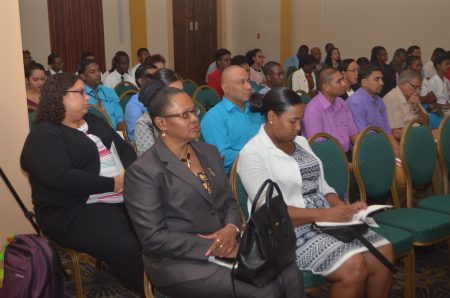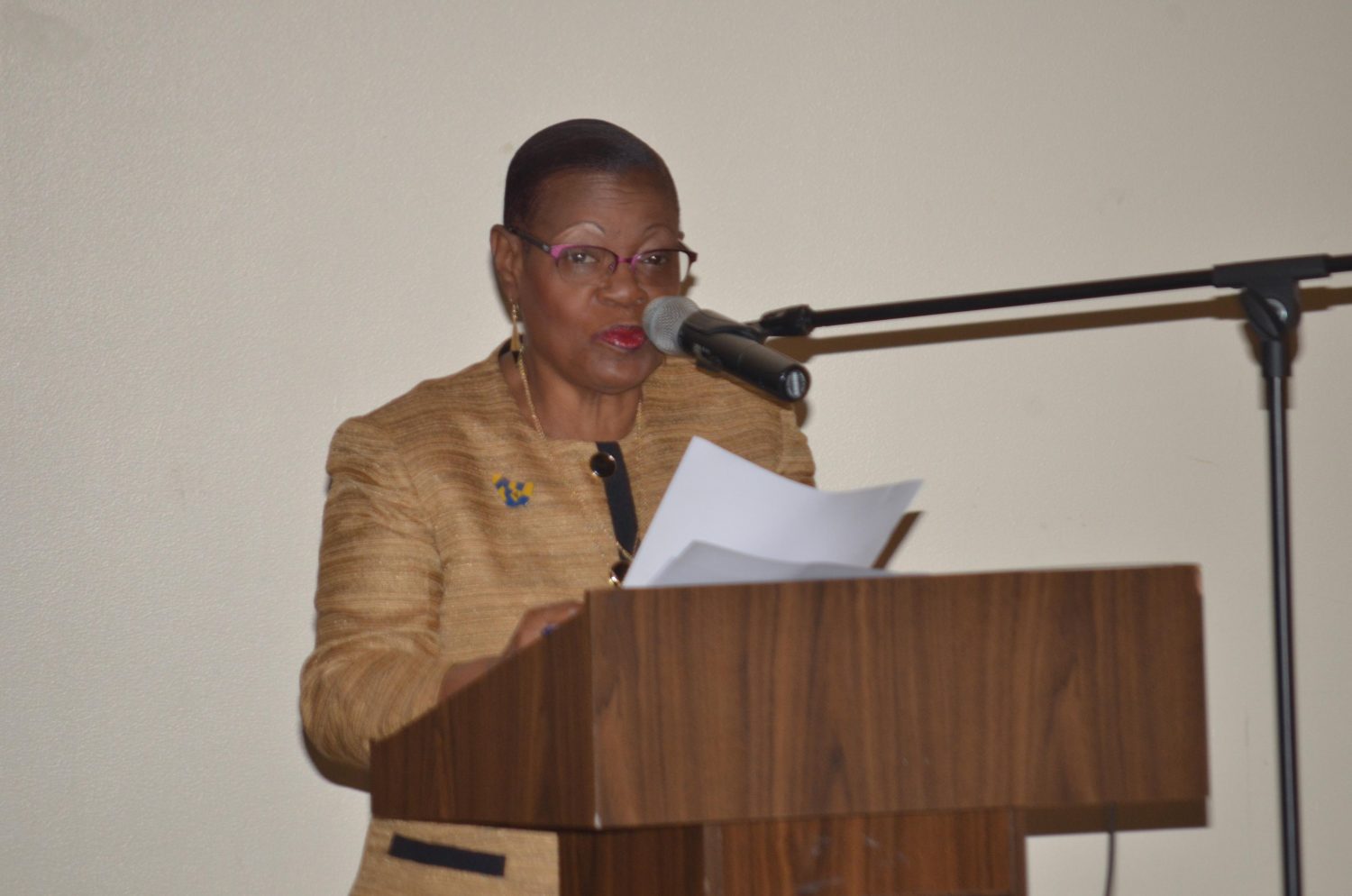The Education Ministry in collaboration with the Caribbean Development Bank (CDB), officially launched the Guyana Skills Development and Employability Project yesterday, in a collaboration meant to improve the delivery of Technical, Vocational, Education and Training (TVET) programmes locally.
This project will see seven vocational training centres and departments across seven regions benefitting from programmes meant to improve the marketability of participants.
“…the Ministry of Education in collaboration with CTVET [Council for Technical and Vocational Education and Training], crafted a communication strategy which included the rolling out of the recently completed career path diagram that caters for the realization of every child achieving their dreams of becoming an engineer, becoming a doctor, a veterinarian, a lawyer…or any field that the child wishes to pursue, even at the doctoral level,” Chief Education Officer Marcel Hutson said during his address.
The launch, which was held at the Pegasus Hotel, was followed by a Project Launch Workshop for stakeholders, which was intended to “orient and familiarize key stakeholders with the CDB’s policies and procedures”. The workshop was held under the theme “From Skills to Prosperity—Skills Development and Technical Education for the 21st Century.”

CDB’s Portfolio Manager Dr Idamay Denny, said yesterday that the project will assist the government in “enhancing access to, and improving the quality and effectiveness of the TVET system.”
This, she related, will be through the enhancement of the learning environment at seven secondary level institutions; enhancing the country’s capacity for instructional effectiveness; enhancing the governance and management capacity of the sub-sector, inclusive of a review of how the system caters to those with special education needs; and providing second-chance opportunities and entrepreneurship skills development.
“Even though Guyana has made considerable progress in the development of the TVET sub-sector, there is still much to be done (across the region as well) to find workable and sustainable solutions to the significant unemployment and underemployment of our youth and the regional goal of reducing poverty. At CDB we recognise there is an important link to people empowerment and sustainable employment,” Denny stated.
“Also, within the region—and Guyana is no exception—despite the increasing investments in TVET, the skills gap and mismatch between what happens in the classroom and the demands of the economy are striking. Too many graduates lack marketable skills and upwards of 40 percent of employers have difficulty finding employees with the right skills to satisfy the needs of the workplace,” she continued.
According to the ministry’s website, Guyana currently delivers TVET at the secondary level through Practical Institution Centres (PICs) and Practical Instruction Departments (PIDs) at secondary schools.
These very departments and centres are the ones that will benefit from the proposed interventions outlined yesterday, which include the implementation of learning resource centres, and workshops in the areas of commercial food preparation, masonry and plumbing, electrical installation and furniture making; garment production and home economics; graphic design; and motor vehicle repairs.
The institutions to benefit from the proposed interventions are the Fellowship PICs in Region Three; the Beterver-wagting PICs in Region Four; the Hopetown PICs in Region Five; the Northwest Secondary (Mabaruma) PID in Region One; the Bartica Secondary PID in Region Seven; the Mahdia Secondary PID in Region Eight; and the St Ignatius Secondary PID in Region Nine.
“…CDB and its BMCs [Borrowing Member Countries] must join in a shared commitment to increasing skills levels in the Caribbean and to ensuring that these skills are relevant for people’s lives and the demands of the labour market,” Denny said.
She further related that the CDB’s Education and Training Policy and Strategy includes approaches for governments, regional institutions, civil society and other relevant stakeholders, to join in the commitment.
It was stated by Denny that the CDB had collaborated with the Government of Guyana in 2007 on the Enhancement of TVET project, which “sought to increase equitable access to TVET, improve the system’s capacity to deliver relevant high-quality programmes and enhance the instructional and operational effectiveness of the sub-sector.”
Following the project’s success, she said, the CDB then reportedly lent technical assistance to the government again in 2014, in an initiative aimed at developing a TVET financing strategy and a “gender-responsive TVET communications strategy”.






